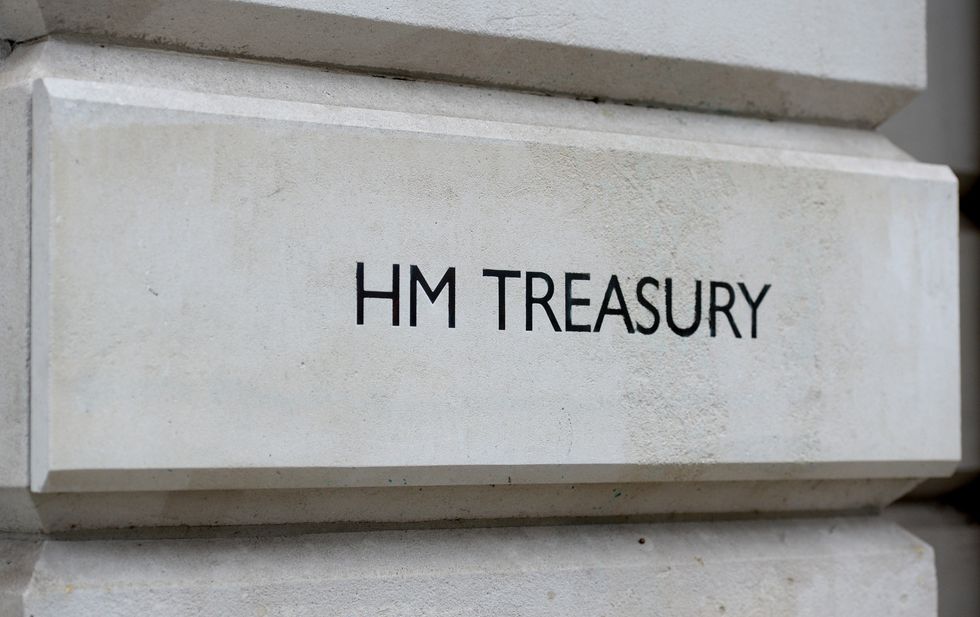State pension age increase set to reward Rachel Reeves's Treasury with £10.4bn savings boon

The state pension age is reviewed and raised regularly depending on various factors, including life expectancy data
Don't Miss
Most Read
Raising the state pension age to 67 by 2029-30 will generate a £10.4billion for the Government, the Office for Budget Responsibility (OBR) has stated.
This significant saving for Chancellor Rachel Reeves and the Treasury represents 5.7 per cent of total pensioner spending projected for that financial year.
The change will directly reduce the number of people eligible for the state pension, creating substantial fiscal impact on public finances.
According to the OBR, the majority of these savings will come from 820,000 fewer 66-year-olds receiving the state pension, saving £10.2bn.

The Treasury is set to make significant savings from raising the state pension age
|GETTY / PA
A further £0.2bn will be saved as 40,000 fewer 66-year-olds receive Pension Credit and Winter Fuel Payment.
This represents a significant shift in eligibility criteria affecting hundreds of thousands of people approaching retirement age.
These savings are partially offset by increased costs for working-age benefits, estimated at £700million in 2029-30.
This is because 66-year-olds will remain eligible for benefits such as universal credit rather than moving to pension payments.
Furthermore, the OBR estimates that if the share of 66-year-olds receiving Universal Credit remains at current levels - around 7.4 per cent - the additional cost would be significant.
Average benefit awards for 66-year-olds are expected to be similar to those currently paid to 65-year-olds.
The rise in state pension age also creates incentives to join or remain in employment, with potential tax benefits for the Treasury.
Do you have a money story you’d like to share? Get in touch by emailing money@gbnews.uk.
 Analysts have warned the Treasury's fiscal headroom has been slashed since the last Budget | PA
Analysts have warned the Treasury's fiscal headroom has been slashed since the last Budget | PAPrevious analysis of the rise from 65 to 66 showed employment rates increased by 7.4 percentage points for men and 8.5 percentage points for women.
A 2023 Department for Work and Pensions (DWP) evaluation found this led to 55,000 more 65-year-olds in employment and average earnings increases of £52 per week.
Similar effects from the rise to 67 could boost tax revenues by around £0.9billion by 2029-30.
Despite these significant financial implications, research by Standard Life reveals concerning gaps in public awareness about pensions.
Half of UK adults do not know how much they will receive in their state pension. Almost a third are unaware of the age at which they'll become eligible to receive it.
This knowledge gap could leave many people unprepared for retirement, particularly as the pension age continues to rise, analysts claim.
Dean Butler, a managing director of Standard Life, said: "The reality is there's a significant gap between what you get from the state pension and what you may actually need or want in retirement."
LATEST DEVELOPMENTS:

Britons in their 60s are being reminded to to check how the state pension changes will impact them
| GETTY"The state pension only covers a very basic lifestyle less than is needed for a minimum standard of living in retirement, according to the Pensions and Lifetime Savings Association (PLSA).
"Because it only starts in your late 60s, it won't help to support you if you want to retire earlier.
"It won't help to support you if you want to retire earlier. It should therefore only form part of your overall retirement plan and, so, it's important to fully understand how much you might need to save into your personal or workplace pension plan to potentially be able to afford the retirement you want."











